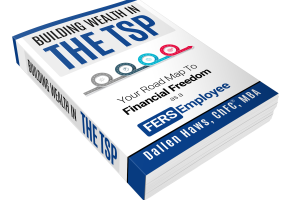As FERS federal employees, Social Security plays a huge role in your retirement. It is another great source of fixed income that will supplement your pension and take tremendous pressure off of your TSP.
But as we all know, knowing when to take Social Security can be quite a challenge. When I talk to federal employees about their plans, there are generally two very opinionated sides.
One side plans on delaying it as long as possible so that they can get the increased amount. The other side is adamant to start at 62 to draw benefits for as long as possible.
So which side is getting the most out of Social Security? It is hard to know.
If We Only Knew
The problem is that we don’t know how long our retirements are going to be. In other words, we don’t know when we are going to kick the bucket. If we did, it would make planning a lot easier.
If we knew that someone was going to die relatively young, it might make sense to start benefits early to get as much as possible while they are still alive. If someone was to live for a very long time, it would be a no-brainer to delay benefits (assuming they can afford to fill the gap while they wait).
Next Best Option
But since exact life spans are still unknown, we are left with the next best option which is to plan for all the possible scenarios. You may not think that you will live to age 100 but what if you did? Would you be financially okay? Would your spouse be financially okay if they lived to 100?
One big advantage of delaying Social Security as long as you can is that it is one of the best ways to ensure that you won’t run out of money in retirement.
While there is nothing that can absolutely guarantee you won’t run out of money (other than solid financial planning), delaying Social Security gives you a guaranteed 8% return for the rest of your life (plus inflation adjustments along the way) for every year you delay it past your FRA (full retirement age).
There is no other investment that you could make that would be able to guarantee anything close. Even the stock market, with an average return around 10%, is very far from guaranteed.
That being said, the cost is that you may have to draw more from your TSP during the years that you are delaying it. And your financial plan may or may not be able to manage that.
Conclusion
But just like almost everything in life, there is no answer that is perfect for everyone. For some people it does make sense to start Social Security early but not for others. It all comes down to what you are solving for. Many people are concerned about not running out of money while others are looking to get as much out of the system now as possible. Some people have completely different factors to consider.
Social Security is not a simple decision and once you make it, it affects the rest of your life. It is in your best interest to educate on what the decision means for you.


